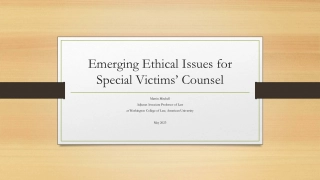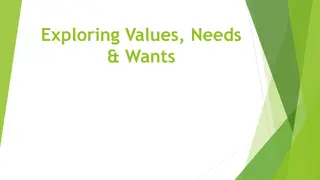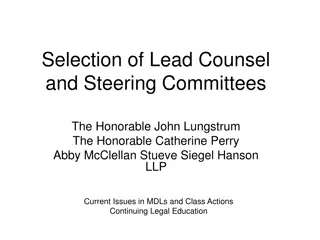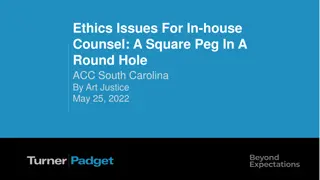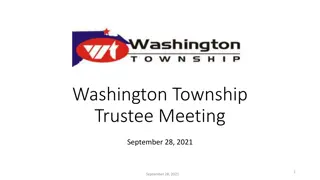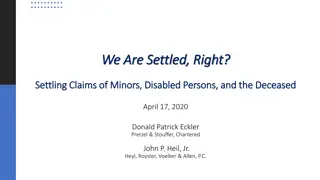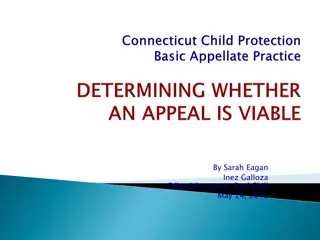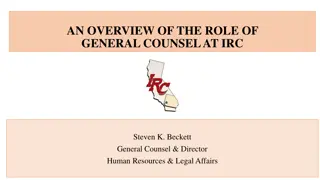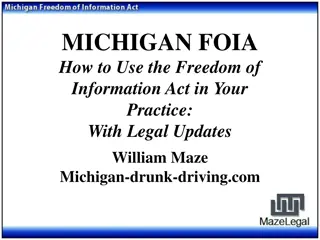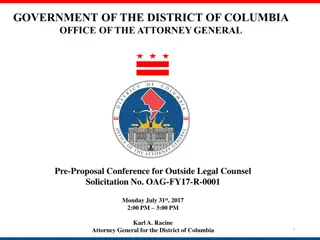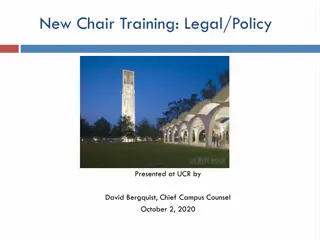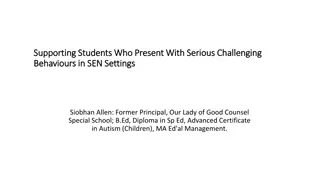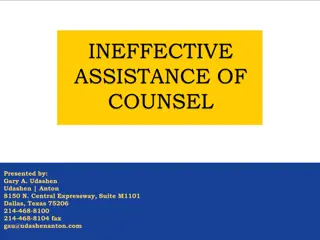
Legal Implications of Being a Chair - Insightful Guidance for Academic Administrators
Explore the legal implications that academic administrators, particularly chairs, need to consider regarding public records, conflicts of interest, and outside activities. Gain valuable insights on handling public records requests and navigating legal issues in academic leadership.
Uploaded on | 0 Views
Download Presentation

Please find below an Image/Link to download the presentation.
The content on the website is provided AS IS for your information and personal use only. It may not be sold, licensed, or shared on other websites without obtaining consent from the author. If you encounter any issues during the download, it is possible that the publisher has removed the file from their server.
You are allowed to download the files provided on this website for personal or commercial use, subject to the condition that they are used lawfully. All files are the property of their respective owners.
The content on the website is provided AS IS for your information and personal use only. It may not be sold, licensed, or shared on other websites without obtaining consent from the author.
E N D
Presentation Transcript
Legal Implications of Being a Chair Ryan R. Fuller UF Associate Vice President and Deputy General Counsel IAL INSTITUTE FOR ACADEMIC LEADERSHIP 2022
Legal Issues for Administrators Public Records Outside Activities and Conflicts of Interest Title IX Tenure and Promotion Process Documenting Personnel Actions ADA Accommodations Signing Authority
Public Records Law Applies to all materials made or received by an agency that are used to perpetuate, communicate or formalize knowledge. Includes business related texts, IMs and emails sent over Gmail and other non- university email systems.
A request for public records does not need to be in writing. The requestor need not identify himself or herself. A reason for the request need not be given. Public records must be retained pursuant to the applicable Records Retention Schedule.
Exemptions from disclosure Examples: Education (student) records Limited access records Faculty Evaluations University Investigations Grievance Records Certain Research Records
How to Handle Public Records Requests Do not hold onto them Do not attempt to make decisions regarding exemptions Forward records requests to the General Counsel s Office
Outside Activities and Conflict of Interest Increased attention, concern and emphasis by federal and state government. What is an activity or financial interest that may create a conflict of interest and needs to reported?
Use of University facilities, equipment, services, employees or students Doing business with the University or competing with the University Candidacy or holding public office Professional compensated activity Business activity, expert witness and consultant in same field or discipline
Conflicts are not the end of the world! However, failing to report them can be. Chairs can help faculty ensure they are reporting everything.
Title IX Prohibits discrimination based on sex in any educational program or activity that receives federal financial support. This includes sexual harassment, sexual violence and sexual assault. Also prohibits retaliation against someone who complains of discrimination or harassment.
Title IX Complaints What is sexual harassment? Administrators are Responsible Individuals under Title IX. You must report observations or reports of sexual harassment, sexual violence, domestic violence, dating violence, sexual assault or stalking. You must report! Notify victim up front. Confidential resources: e.g., victim advocates, counselors, clergy.
Report to Title IX Coordinator In addition to reporting to Title IX Coordinator, refer victim to UPD victim advocate, and provide assistance with contacting resources and academic support.
Tenure and Promotion Procedures Administrators have an important role Regulations, CBAs, College and Department Bylaws/Procedures, University Guidelines Dean s Office and Provost s Office can help
Documenting Personnel Actions Evaluations Be honest and set clear goals Performance Improvement Plans Written Counseling Letters Training tools not discipline Progressive Discipline Consider Documents Included in Tenure and Promotion Packets Expectations Document and put faculty on notice
ADA Accommodations Americans With Disabilities Act Prevents discrimination against individuals with disabilities Employers are required to provide qualified employees with reasonable accommodations to allow them to perform essential job functions Employee does not need to use magic words to request accommodation Don t diagnose or accommodate on your own; call ADA Office/Human Resources instead
Signing Authority Simple! Chairs and Directors do not have signing authority. Office of General Counsel can assist.

